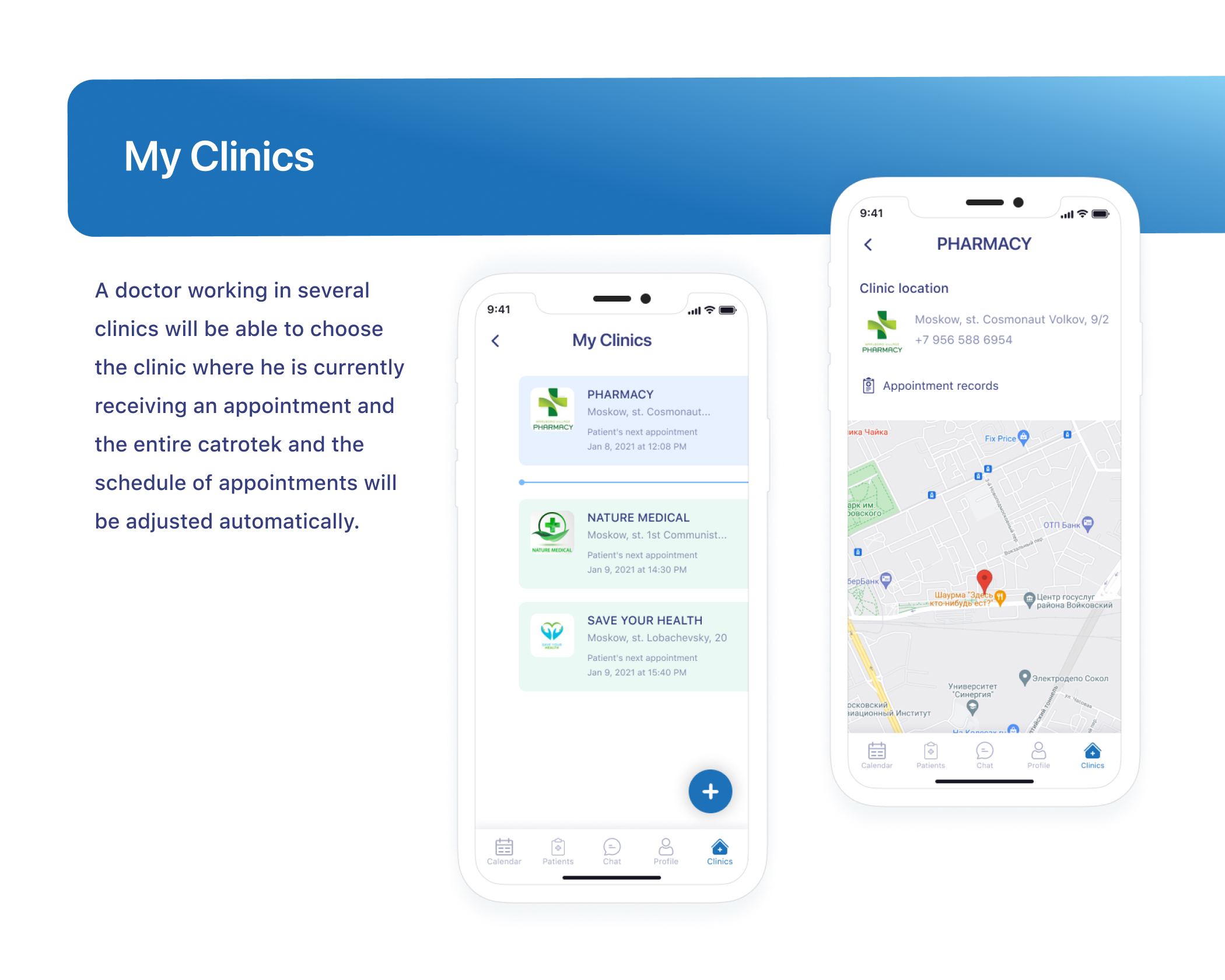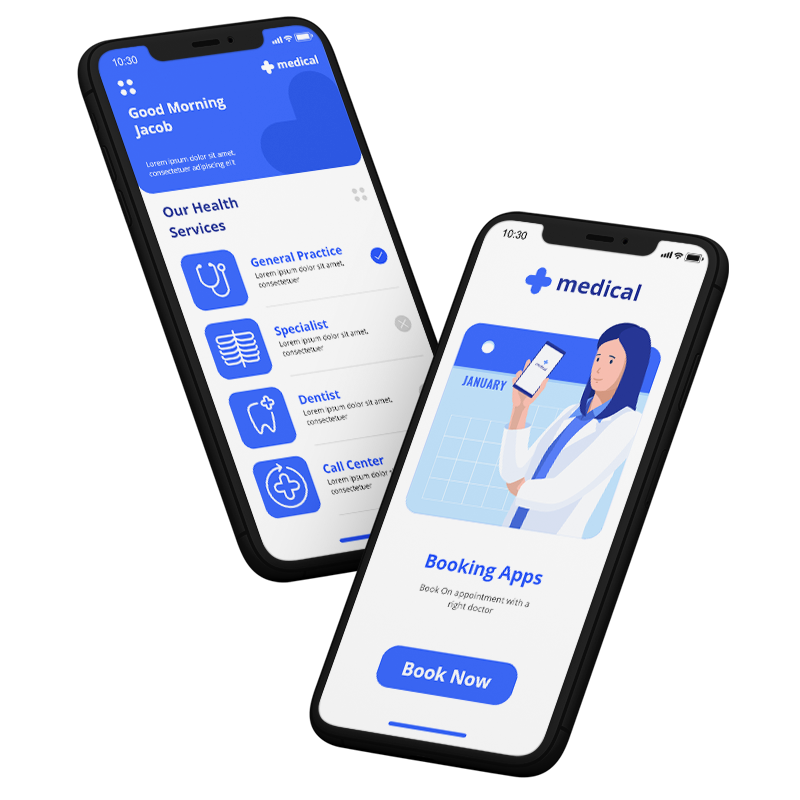Changing Patient Experience with a User-Friendly Mobile App for Clinics
Changing Patient Experience with a User-Friendly Mobile App for Clinics
Blog Article
The Future of Health Care: Why Clinics Need a Mobile Application Today
As the health care landscape proceeds to advance, clinics deal with placing stress to adapt to individual assumptions for greater comfort and accessibility. The integration of mobile applications can function as a vital technique for enhancing person engagement and improving operations. By leveraging modern technology to boost communication and offer necessary solutions, facilities not only deal with present needs yet additionally position themselves for future success. Nonetheless, the implications of this shift prolong beyond simple functional effectiveness; they can redefine person relationships and care delivery in profound methods. What might this change appear like for both clinics and people?
Changing Patient Assumptions
As the landscape of medical care develops, person assumptions are going through a considerable transformation. Today's people are significantly seeking ease, access, and customized care. With the surge of innovation, particularly mobile applications, individuals now prepare for a seamless integration of medical care services right into their daily lives. They want the capability to manage visits, access clinical records, and interact with doctor via their mobile phones, mirroring a shift in the direction of a more aggressive method to wellness management.
Furthermore, clients are coming to be more notified and equipped, usually researching treatments and conditions on the internet before examinations. This enhanced awareness is combined with a need for openness in medical care procedures, consisting of price price quotes and therapy alternatives. Therefore, service providers are obliged to adapt by embracing digital tools that improve the patient experience.
The expectation for effective and prompt communication has never been higher, with many patients considering responsiveness an important part of high quality care. mobile app for clinics. In this progressing landscape, health care organizations should acknowledge these changing assumptions and leverage mobile applications to foster a much more patient-centric approach, guaranteeing that they not only fulfill but exceed the criteria established by today's enlightened customers
Enhancing Patient Involvement

Mobile applications promote communication between clients and medical care companies, making it possible for real-time appointment scheduling, pointers for medicine adherence, and straight messaging attributes. These performances not just boost ease but also build a sense of responsibility among patients. Mobile apps can provide educational content tailored to individual demands, aiding people much better recognize their problems and treatment options.
The integration of gamification elements within healthcare applications can additionally inspire clients to take part in healthy actions, enhancing positive lifestyle changes. By tracking progression and rewarding success, individuals are most likely to remain dedicated to their health goals. Inevitably, boosting individual engagement via mobile applications brings about boosted health and wellness results, higher client fulfillment, and a more collaborative medical care experience. Facilities that prioritize this element will likely see a significant impact on the top quality of care supplied.
Streamlining Center Procedures
Enhancing clinic operations is essential for improving operations efficiency and maximizing patient care. The implementation of mobile applications can substantially minimize management burdens, enabling doctor to focus a lot more on person interactions. By automating appointment scheduling, person check-ins, and payment processes, facilities can decrease wait times and improve overall operational effectiveness.
Mobile applications additionally promote real-time access to patient documents, allowing health care specialists to make informed decisions quickly. This immediacy not only enhances the high quality of care however likewise minimizes the chance of mistakes connected with lost or obsoleted details. Leveraging mobile technology sustains an extra well organized technique to handling individual follow-ups and treatment plans, guaranteeing that no crucial steps are overlooked.
Additionally, mobile applications can improve inventory management by giving facilities with tools to monitor medicines and supplies efficiently. This permits for prompt replenishment and helps stay clear of disturbances in patient care as a result of stock lacks. By integrating these capabilities into their daily operations, clinics link can develop a much more efficient and natural atmosphere, eventually bring about boosted patient outcomes and fulfillment. Accepting mobile innovation is not just a fad; it is an essential advancement in the health care landscape.
Improving Interaction Channels
Reliable interaction is regularly pointed out as a foundation of quality health care distribution. In today's fast-paced medical atmosphere, mobile applications can significantly enhance communication networks in between facilities, patients, and doctor. By incorporating mobile applications right into their procedures, facilities can facilitate real-time communications, guaranteeing that individuals get prompt details concerning their consultations, test results, and treatment plans.
Mobile apps also empower clients to communicate directly with their health care groups with safe messaging attributes. This straight line of interaction cultivates a feeling of interaction and enables instant information of worries, which can cause far better adherence to therapy methods. Additionally, press notices can remind individuals of upcoming visits or medicine routines, decreasing no-show prices and enhancing total wellness end results.

Staying Competitive in Medical Care
In a quickly advancing healthcare landscape, companies must prioritize advancement and flexibility to preserve a competitive edge. The assimilation of mobile applications into healthcare solutions is no longer optional; it is important for facilities intending to enhance client involvement, enhance procedures, and improve overall service shipment.
As individuals progressively rely upon digital systems for health and wellness administration, centers that stop working to take on mobile modern technology threat falling behind. A well-designed mobile app can provide functions such as visit organizing, telemedicine appointments, and accessibility to clinical documents, giving people with comfort and cultivating commitment.

Competitors are likewise buying mobile services, so staying in advance requires constant improvement and staying informed regarding technical developments. Facilities should not just execute mobile applications however additionally engage in routine updates and improvements. Ultimately, site link the effective integration of mobile innovation will certainly distinguish forward-thinking medical care organizations and established the criteria for patient-centric treatment in a digital globe.
Conclusion
In final thought, the combination of mobile applications in centers is necessary to resolve the advancing landscape of person expectations. Inevitably, the critical application of mobile applications stands for an important step toward delivering accessible and tailored medical care, consequently satisfying the needs of today's empowered clients.
Ultimately, boosting individual engagement via mobile applications leads to boosted health and wellness outcomes, better person complete satisfaction, and a more joint health care experience.Mobile applications likewise more tips here facilitate real-time accessibility to individual records, making it possible for medical care experts to make informed choices quickly. In today's busy medical setting, mobile applications can substantially boost interaction channels between clinics, individuals, and health care suppliers.Mobile apps additionally empower patients to connect directly with their medical care teams via protected messaging features. Inevitably, the critical implementation of mobile applications represents a vital step toward supplying available and tailored healthcare, consequently meeting the needs of today's equipped people.
Report this page